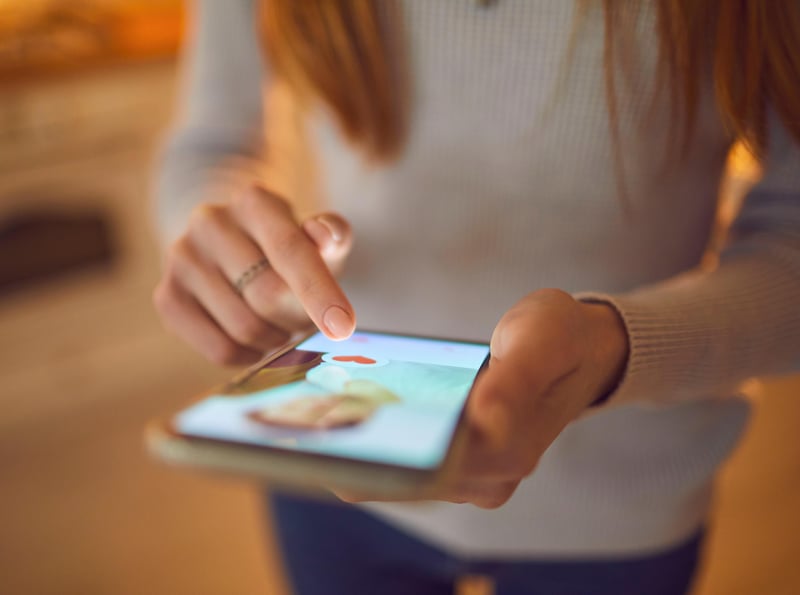Get Healthy!

- Denise Mann
- Posted February 13, 2023
Looking for Love on V-Day? All That Swiping May Not Help
If you're one of the millions seeking The One this Valentine's Day, here's a tip: Try swiping less.
This is the main message from a new study that found excessive swiping on dating apps can cause partner choice overload, among other issues.
"Dating apps may give us the impression that there is always someone better just around the corner, so we keep on swiping,"said study author Jörg Matthes, a professor of communication at the University of Vienna in Austria. "That's not necessarily true: You may not need 99+ matches to find love."
(For the uninitiated, swiping right on a dating app means you're interested in someone; swiping left means you're not. Apps reward frequent swiping with more choices.)
In the study of 464 dating app users between 16 and 25 years of age, those who swiped excessively were more likely to feel like potential partners were out of their league, fear being single, and /or experience partner choice overload.
This was true if people listened to their gut and swiped quickly or gave potential dates more thought before swiping left or right. The more a person used dating apps, the more likely they were to be excessive swipers, the study showed.
Some people use dating apps excessively, similar to compulsive gambling, Matthes said.
"Excessive use can have negative psychological effects on people,"he said.
The research appears in the March issue of the journal Telematics and Informatics.
Relationship experts who weren't part of the study pointed out that apps aren't the only way to find love.
"Dating is a game, love isn't,"said Lori Zaslow, co-founder of the matchmaking service Project Soulmate. "Online dating apps' main goal is to get you to have a relationship with the app."
Don't be too dependent on online dating, she advised.
"Instead, use it as a supplement to other forms of meeting people like through friends, parties and even at a local coffee shop,"Zaslow said. "Sign up to do something you love, like play pickleball, participate in group sports, crafts or travel, and you'll likely meet someone who loves to do the same things you enjoy."
Relationship expert Terri Orbuch said devoting too much time to dating apps isn't healthy.
While the new study took place in Austria, the results likely apply to people looking for love in the United States and elsewhere, said Orbuch, a sociology professor at Oakland University in Rochester, Mich.
While there's no precise definition for excessive use, "if you swipe every night before bed and every morning when you first wake up, that's excessive,"she said.
Instead, Orbuch suggested, focus on just one or two apps. "Use the paid ones as you are invested and will take it more seriously," she said.
Then, go slow before you swipe.
"Looks and attraction may be important for casual relationships, but if you are looking for long-term love, other things are more important, including compatibility and feelings about religion, spirituality and family,"Orbuch said.
And, beware: Excessive swiping can lead to excessive matching, which, in turn, can leave you feeling overwhelmed by all the options, said Alexander Baxter, a doctoral student in psychology at the University of California, Davis.
There probably is not one perfect match out there for you, he noted. "You could probably have satisfying and meaningful connections with a variety of different people,"Baxter said.
If you're feeling burned out from online dating, take a break for a few days or even a few hours, he suggested.
Then, when you start up again, try to swipe more mindfully.
"Take some time to reflect on why you are swiping and what types of experiences you are looking for from the dating app [as this] will probably help you feel more in control of your swiping and help you get the most out of the app,"Baxter said.
More information
The American Sexual Health Association offers tips for fostering healthy romantic relationships.
SOURCES: Jörg Matthes, PhD, professor, communication, University of Vienna, Austria; Lori Zaslow, co-founder, Project Soulmate, New York City; Terri Orbuch, PhD, professor, sociology, Oakland University, Rochester, Mich.; Alexander Baxter, PhD candidate, psychology, University of California, Davis; Telematics and Informatics, March 2023







